Orckestra Commerce Cloud New Features
Orckestra Commerce Cloud Version 5.3
Version 5.3 includes several features that improve the business user experience. It also includes the ability to support ApplePay and ApplePay integration using the Bambora Payment Provider (now called Worldline).
In addition, the Order Management application now provides the ability to view and edit base and custom order line item attributes. Order editing rules can also be configured at the individual fulfillment location level setting the specific deadline until which customers can edit orders that they have already submitted. In addition our reference storefront (aka RefApp) now also includes a packaged order editing experience that our customers can leverage to quickly enable their order editing process.
Order Management
Orckestra Commerce Cloud now supports the ApplePay method
Orckestra Commerce Cloud (OCC) 5.3 complements the Bambora (now Worldline) payment service integration, introduced in the previous version of OCC, with ApplePay support. To support standard operational business needs, business users can manage the complete lifecycle of orders that use Apple Pay in the same way as they can manage orders paid using standard credit card payment. Orders paid though ApplePay show distinct payment details and offer customer service representatives the standard set of payment operations. Users can refresh orders to view the latest payment status and can perform order modifications such as updating payment amounts, settling or voiding a payment, and initiating order cancellation triggering refund operations.
Note: The Order Management application does not support capturing or modifying an ApplePay payment method (including order item increase), because this payment method type can only be captured by customers during the checkout process of an order.
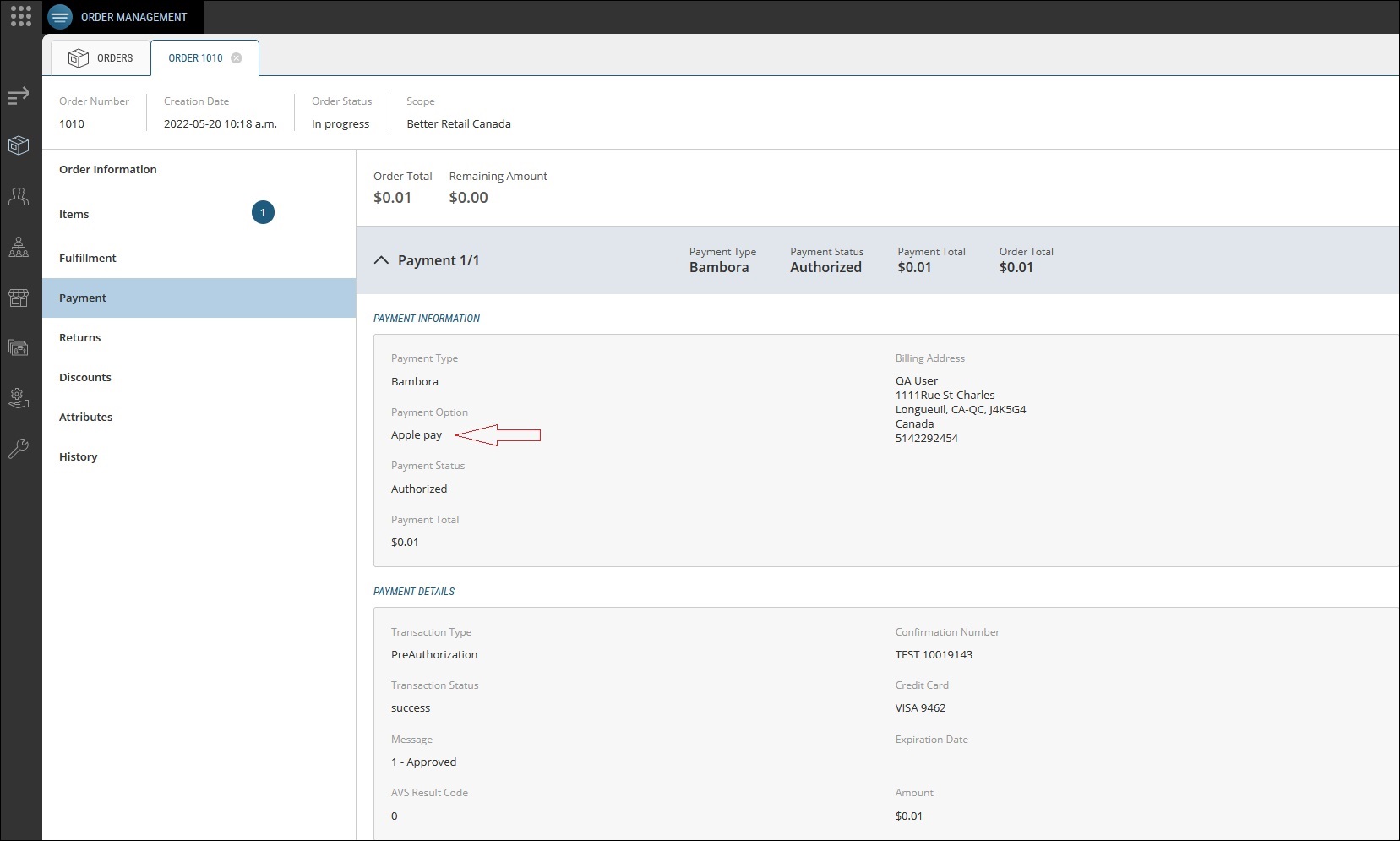
For more information see the Payments section in Viewing Orders and Modifying Orders
Display and modification of order line items
Orders line item details can now be viewed and edited while creating, modifying, or viewing orders in the Order Management application.
Once line items have been selected by browsing the catalog or through manual SKU entry, clicking a line item from the list displays its default and custom attributes. The information is divided into 2 tabs: Item Information and Custom Attributes. Item Information displays base attribute values while Custom Attributes allow OMS users to view or modify the custom attributes of line items. For example, an OMS user can enter substitution preferences for a specific line item while reviewing an order.
This feature also supports recurring order features using line item custom attributes to affect future orders. For example, shipping preferences are expressed in custom attributes of recurring items and lead to recurring orders enforcing those shipping preferences.
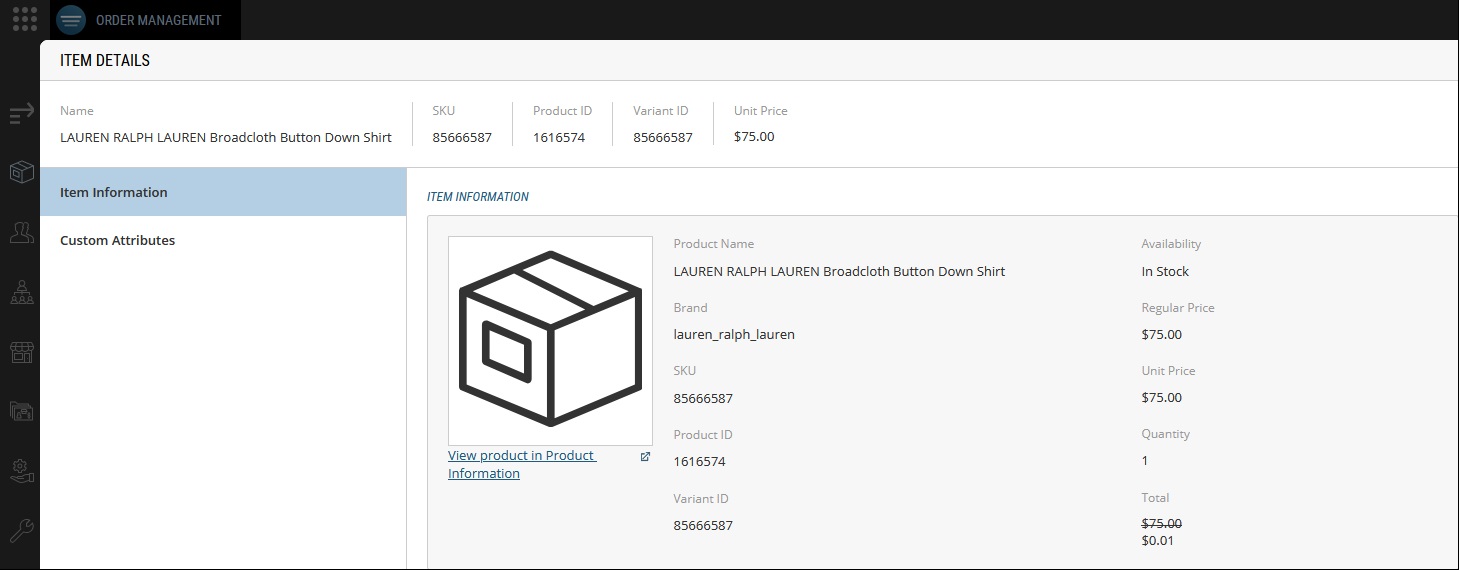
For more information see the Line Items section in Viewing Orders, Creating Ordersand Modifying Orders
Locations can now define the time required to fulfill orders as well as deadlines until when orders can be edited by customers
In OCC 5.3, we introduce a pre-built component in the Reference Application providing an end-user experience for editing orders after they have been submitted. With this new functionality, customers are able to amend submitted orders with modifications such adding or removing items from their order. However, the order must only be editable up to a certain time providing a reasonable cut-off time for the order to be fulfilled without changes being made too late in the fulfillment process. Order editing cut-off times can be configured per fulfillment location. Fulfillment Location Managers can pick from 2 different settings: Fulfillment Cut-Off Time or Fulfillment Lead Time to define the timeframe required by fulfillment locations to prepare orders.
Paired with specific order and shipment statuses, this setting provides an adequate buffer for fulfillment locations to prepare orders. The cut off or lead time can be set at the location level under the fulfillment tab while the order and shipment statuses selection is available under the System Configuration of the OMS.
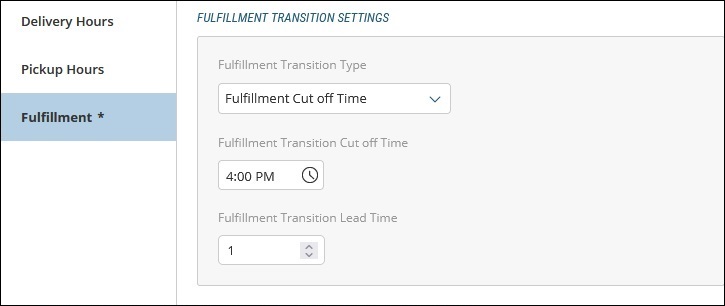
For more information, see About Fulfillment Options and Order Configuration
Other Order Management Improvements
Additional improvements are now available in this release. Organization and Locations numbers are now editable after being created. In addition, it is now possible to reset a customer's password using a manual entry. Customer Service Representatives can reset the customer's password by clicking Reset Password in the Customer's Account.
For more information see Resetting the customer's password and Managing Password Reset Settings
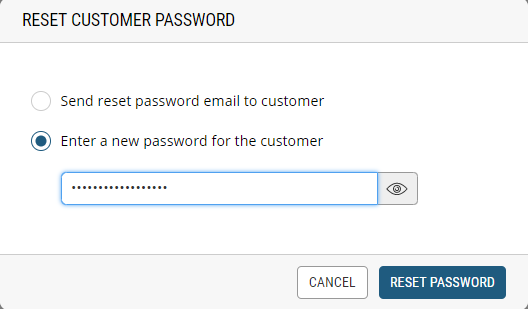
Recurring Order Improvements
Shipping recurring line items to different addresses
This new feature allows customers to have multiple recurring order schedules for the same line item to ship to different addresses. This requirement is common in B2B scenarios where a customer might want regular quantities of a specfic item ordered at regular intervals and shipped to two or more different locations.
Note: This feature will also be supported in the Reference Application in a future release.
Experience Management
Display of conditional content for different audiences
Businesses often have different customer segments and audiences, so they may need to display content based on these different customer types. For example, the website might show personalized banners if the customers are part of a "VIP Club" and a different version for regular users - or even store-specific content can be displayed if the user has selected a specific store on the front-end website.
We have introduced a new function in the Experience Management application that allows content managers to create different content within a content page that is targeting different audiences.
To use this new feature, users can select the ConditionalContent function in a content page and customize content using profile segments. Content editors can leverage the different profiles set in the platform and even narrow the target audience by using the NOT/AND/OR conditions to create multi-level segments.
In the image below, customers with a recurrent customer profile and a registered account would view different content than guest users.
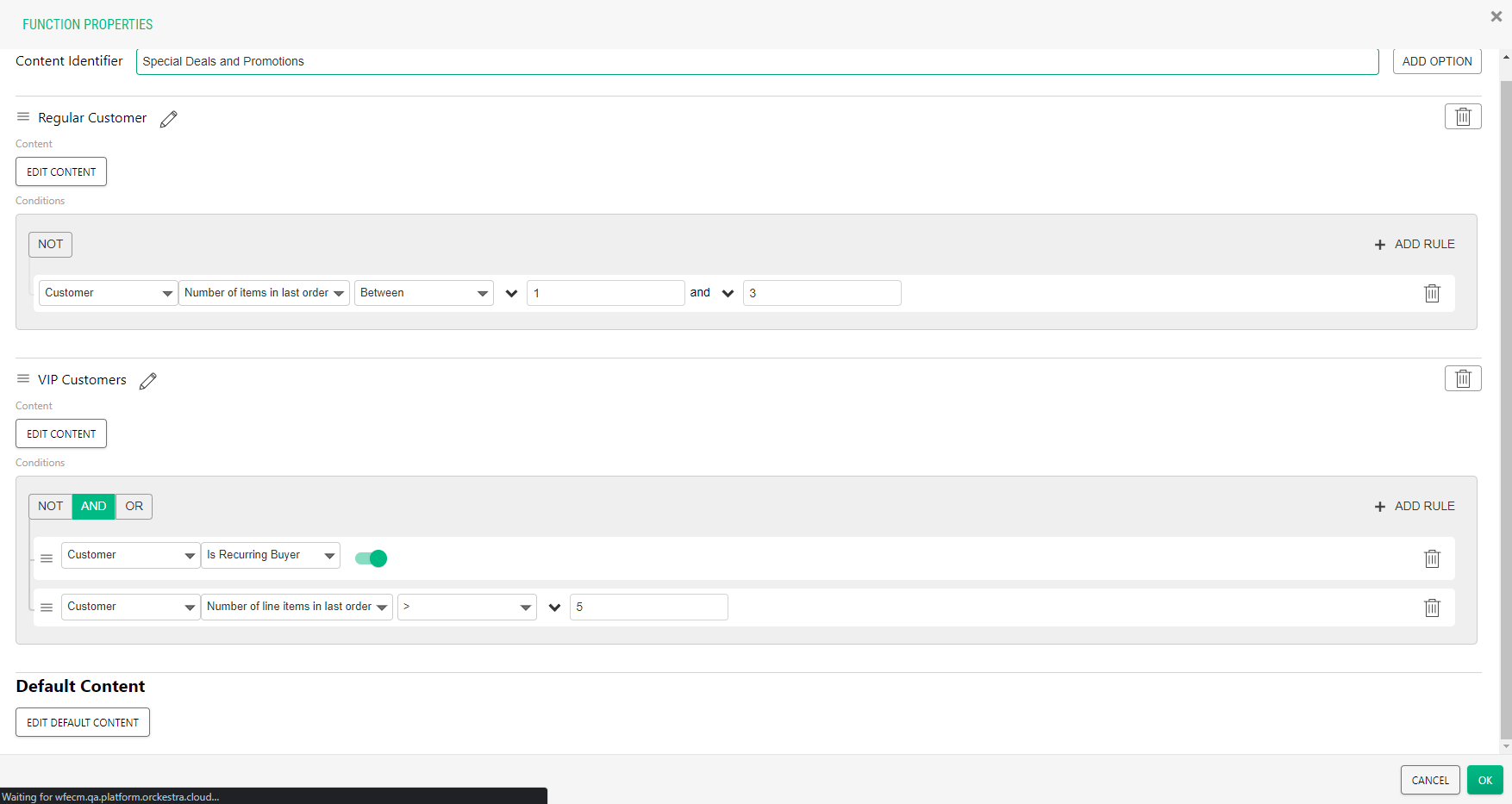
For more information, see Creating Conditional Content
Reference Application
Order modification from the My Account page
This new version of the Reference Application now offers the ability for our clients’ customers to modify their orders under the My Account section. When creating orders as a logged-in customer, customers will be able to modify their orders until the store cut off or lead time has been reached. This setting is defined at the store level, according to their requirements.
While modifying their orders, customers will be allowed to increase or decrease the number of ordered items, add new items, and remove items. When increasing the number of items or adding items, customers are obliged to repeat the checkout process.